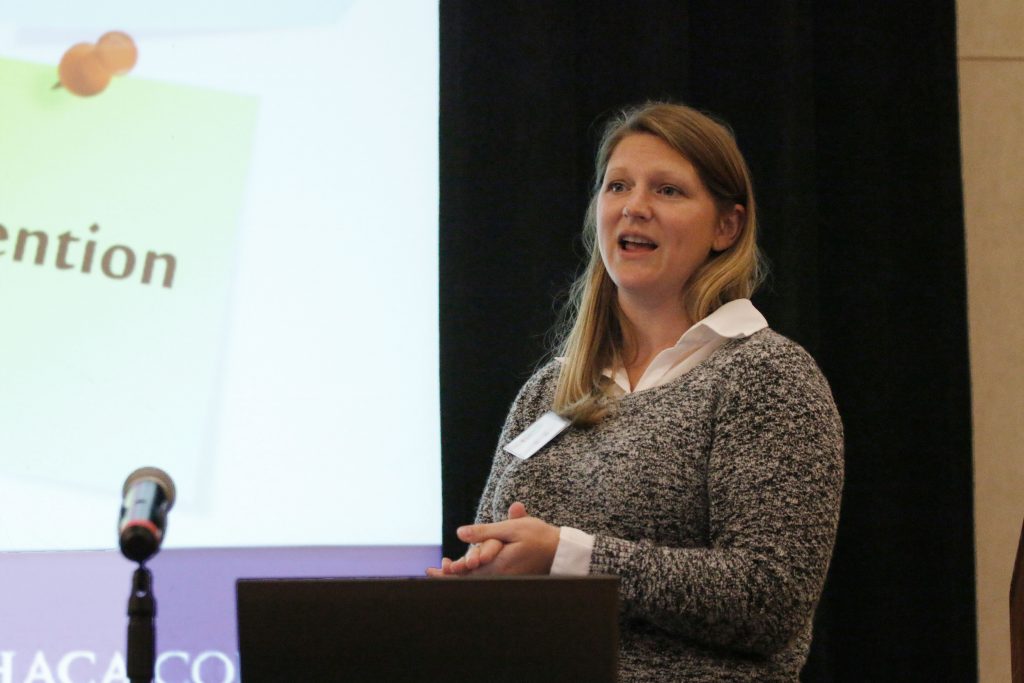
The first Healthy Campus Summit was held in Old University Union on Wednesday to highlight Binghamton University’s Healthy Campus Initiative (HCI), a collaborative effort that strives to promote students, faculty and staff to live healthy lifestyles.
Johann Fiore-Conte, the assistant vice president for health and wellness, said that the HCI is meant to show students, faculty and staff that health is an important issue on campus.
“It’s a campus-wide initiative to recognize health as a high priority and value here at Binghamton University,” Fiore-Conte said. “So we are working to do things to support the constituents on campus in maintaining their optimal health, which could be different for everybody.”
The keynote speaker was Megan Amaya, the director of health promotion and wellness and an assistant professor in practice at the Ohio State University College of Nursing and president-elect for the National Consortium for Building Healthy Academic Communities. She spoke about ways to build a culture and environment of wellness at colleges. Linda Spear, a professor of psychology at BU, spoke about adolescent and college-age drinking.
Students from clubs such as 20:1 Sexual Assault Prevention Program and Mental Health Outreach Peer Educators tabled in the Tillman Lobby in New University Union to share with students passing by the different health resources the University has to offer. Other groups were present as well, including the Student Culinary Council and the Undergraduate Research Center.
Faculty were given the opportunity to learn about ways they could participate in the initiative through a panel of Healthy Campus agents, who are faculty and staff advocating healthy lifestyle choices within their department or office.
Cindy Cowden, the senior associate director of Campus Recreational Services and the chair of the HCI steering committee, helped organize the summit and said that the purpose of this event was to publicize the HCI.
“The Healthy Campus Initiative has actually been working for about three years and we’ve made a lot of progress both on the local and national level, but we’ve never advertised that in a profound way on campus,” Cowden said. “The summit is the first opportunity to kind of highlight and showcase what the initiative has been doing, what we have planned as well as all of the resources and services that are available already on campus that are open to students, faculty and staff.”
William Wondra, a junior double-majoring in psychology and economics, is an intern with 20:1. Wondra said that the summit gave 20:1 a chance to start a conversation with students and to publicize what they do.
“It gets our name out there primarily,” Wondra said. “If you know 20:1 is there, you can go to them if you have a problem. It’s also good to get people walking by who wouldn’t normally go to our events and talk to them and get the idea of why this is important into their heads.”
Sharon O’Neill, a Healthy Campus agent and the senior associate director of Residential Life and marketing, said that the summit allowed people from different areas on campus to come together and share what they’re doing to maintain the initiative.
“I think that as a university there is so much being done around health and wellness, whether it’s research, individual offices, different departments and the right hand doesn’t necessarily know what the left hand is doing per se,” O’Neill said. “So having this initiative is our opportunity to share with the grander campus.”


